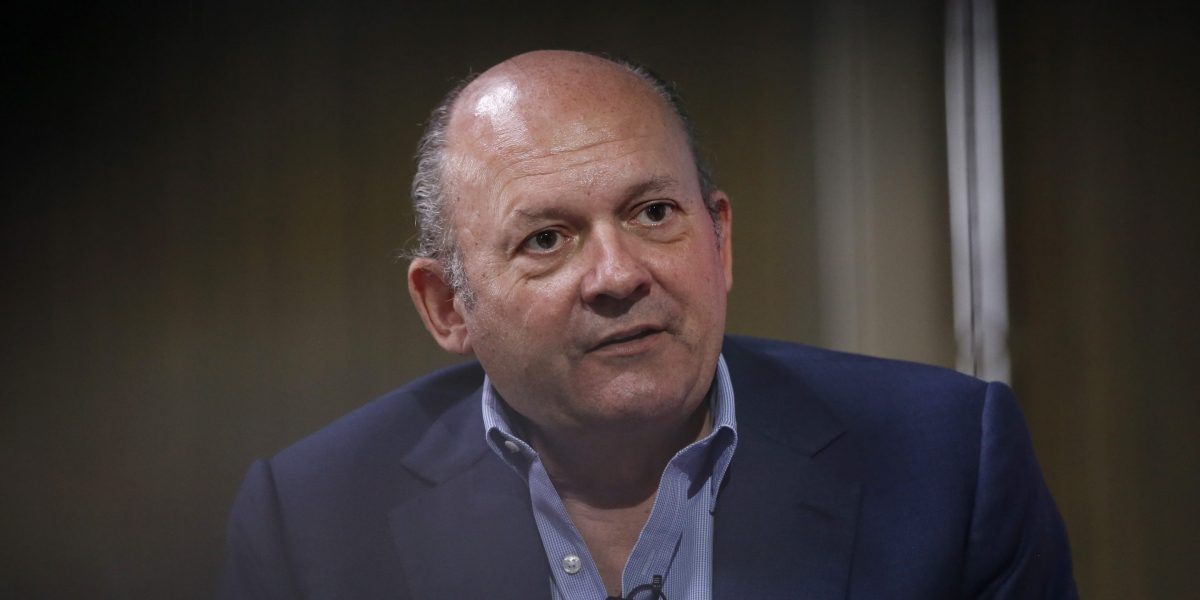As CEOs continue to digest the fallout of the murder of UnitedHealthcare CEO Brian Johnson, a billionaire backer of major companies believes a pay rise is needed to attract them to the job.
Lord Michael Spencer, the billionaire British financier, is frustrated by his belief that CEOs in the U.K. deserve to be paid in the same ballpark as the Premier League’s biggest stars like Kevin De Bruyne and Erling Haaland.
“We don’t mind paying our footballers, top-rate footballers, extraordinary amounts of money,” Spencer told the FT.
“Somehow that’s considered perfectly acceptable. But if the CEO of BP or HSBC earns £20 million a year, materially less than their peer group in America, everyone jumps up and down saying this is an outrage.”
He added: “The U.S. celebrates the fact that great chief executives earn large amounts of money. They want their chief executives to be paid like football stars.”
Spencer’s argument is similar to one made by Ryanair CEO Michael O’Leary in April, who used footballer pay to justify his potential €100 million bonus.
The problem with Spencer’s comments? CEOs effectively are already paid like footballers in the U.K.
Multi-millionaire CEOs are already the norm
The average FTSE 100 CEO earned £4.2 million in 2023, while FT analysis shows the average Premier League salary was £1.98 million in the same year.
Spencer was more likely suggesting that CEOs should be paid at levels similar to those of the highest paid in the Premier League. But even here, the figures are comparable.
Manchester City’s Kevin De Bruyne is thought to be the highest-paid player, earning a salary of about £400,000 per week, or £20.8 million a year. With playing-related bonuses and sponsorship deals, his income is likely millions higher.
AstraZeneca CEO Pascal Soriot earned £16.85 million in 2023, making him the FTSE 100’s highest-paid boss. In second place was RELX’s Erik Engstrom with a £13.64 million package, while Rolls Royce’s Terfan Erginbilic earned £13.61 million.
U.K. bosses have faced steep resistance from investors to pay rises in recent years. AstraZeneca’s Soriot saw 38.5% of shareholders reject plans for a £1.8 million pay increase in April.
Rajiv Jain, chief investment officer at top 20 shareholder GQG Partners, said Soriot was “massively underpaid” when compared with U.S. pharmaceutical CEOs.
Shareholders have been cautious to approve bumper pay rises in an era of historically high inflation that has hit those less well off the hardest.
On the other hand, proponents of pay rises say they are required to prevent a flight of companies and talent from the U.K. Several U.K. companies have chosen to move their listings to the U.S. this year in search of better market valuations.
C-Suite in the spotlight
Spencer’s comments come at a time of deep unrest in the C-Suite.
The murder of UnitedHealthcare CEO Brian Thompson last week has brought into the spotlight executive safety at major companies.
UnitedHealthcare and other insurance companies, Elevance Health and Anthem Blue Cross Blue Shield, removed board leadership bios in an apparent effort to protect their privacy amid heightened safety concerns.
Fortune’s Leadership editor Ruth Umoh and reporter Natalie McCormick wrote of a growing trend of trepidation among execs to make the move to the corner office, one that could be accelerated by Johnson’s death.
Those hoping to reverse that trend argue that higher pay may be the way to go.
This story was originally featured on Fortune.com
Source link

 Entertainment8 years ago
Entertainment8 years ago
 Politics8 years ago
Politics8 years ago
 Entertainment8 years ago
Entertainment8 years ago
 Entertainment8 years ago
Entertainment8 years ago
 Tech8 years ago
Tech8 years ago
 Tech8 years ago
Tech8 years ago
 Tech8 years ago
Tech8 years ago
 Politics8 years ago
Politics8 years ago







